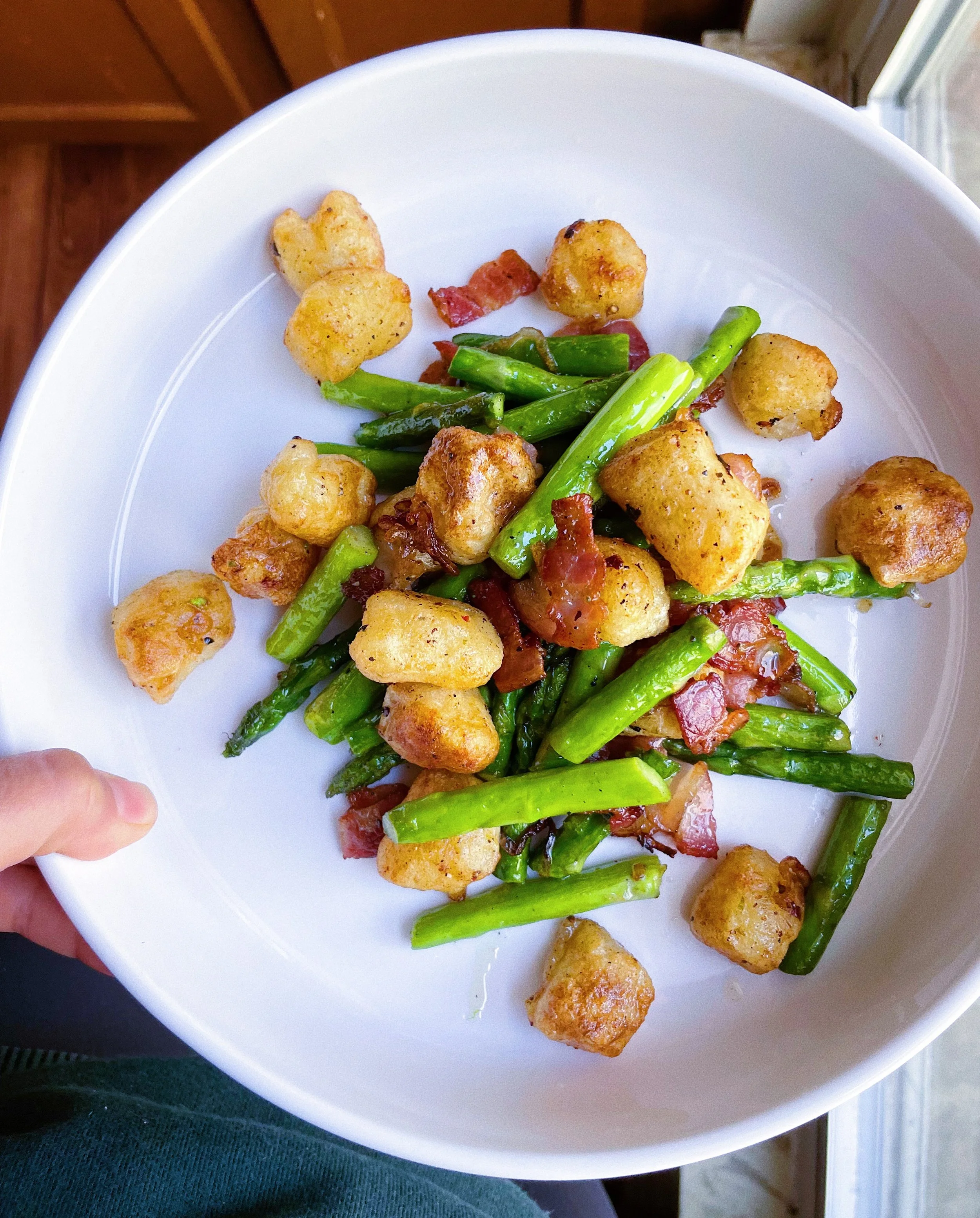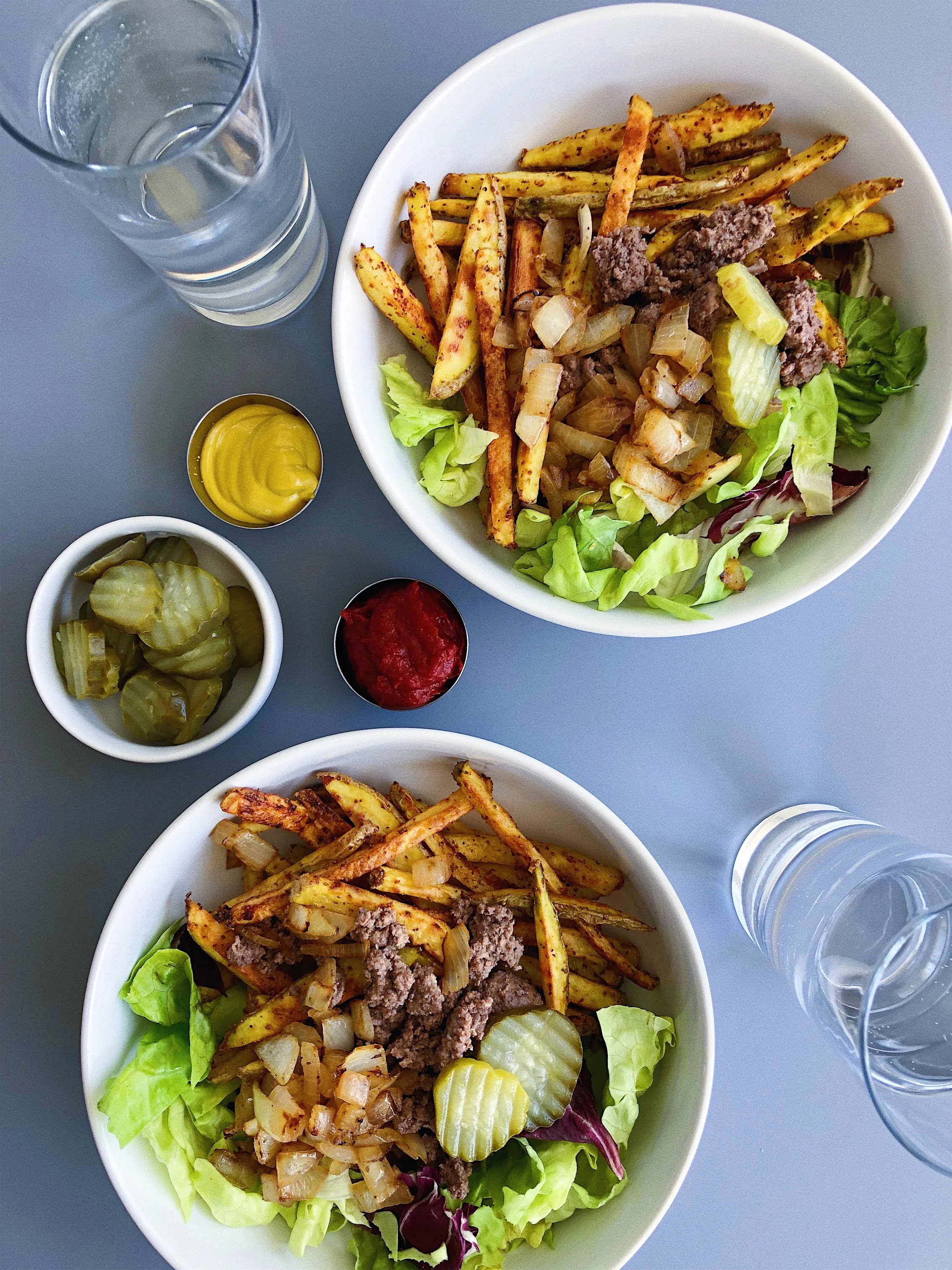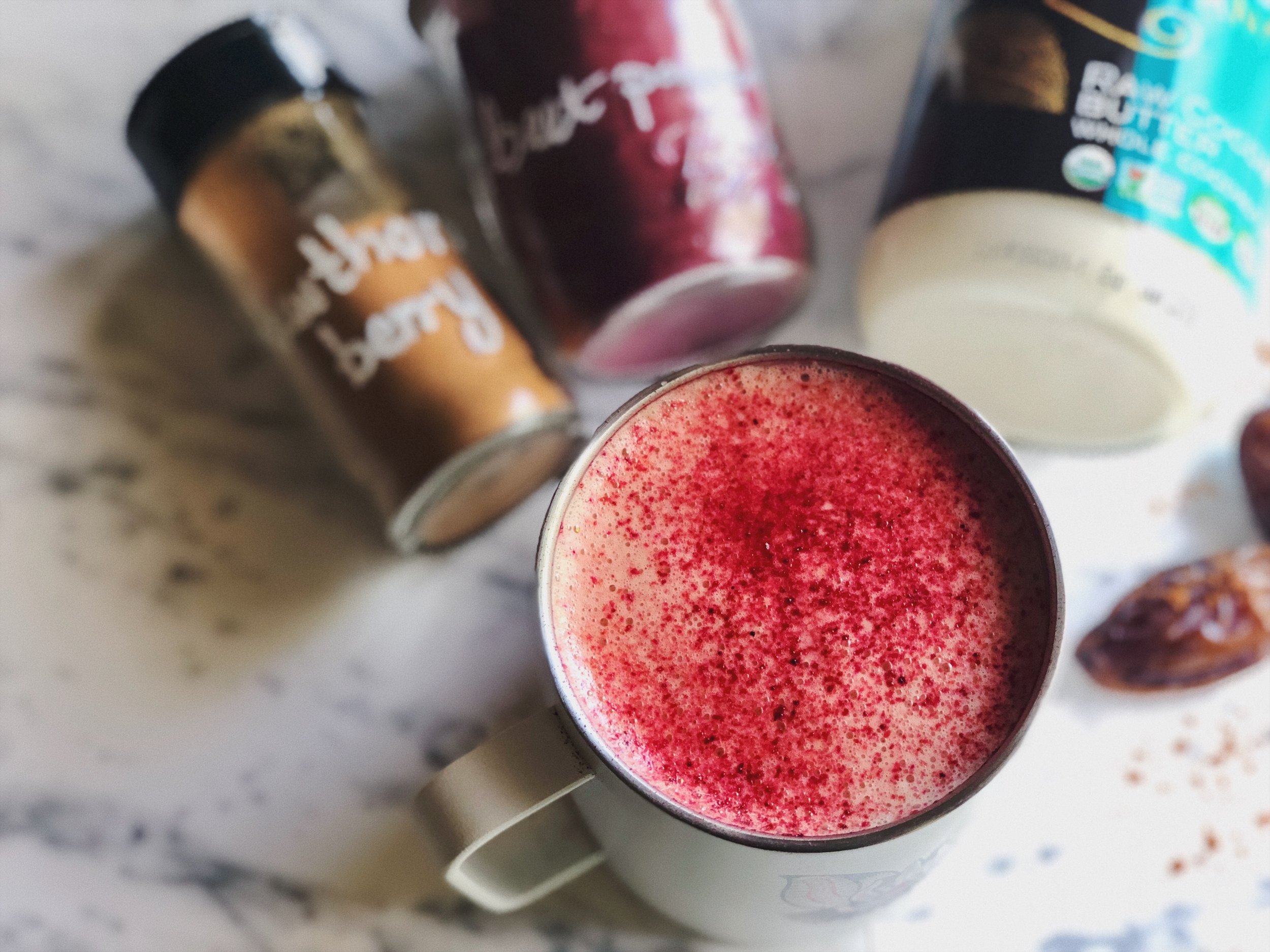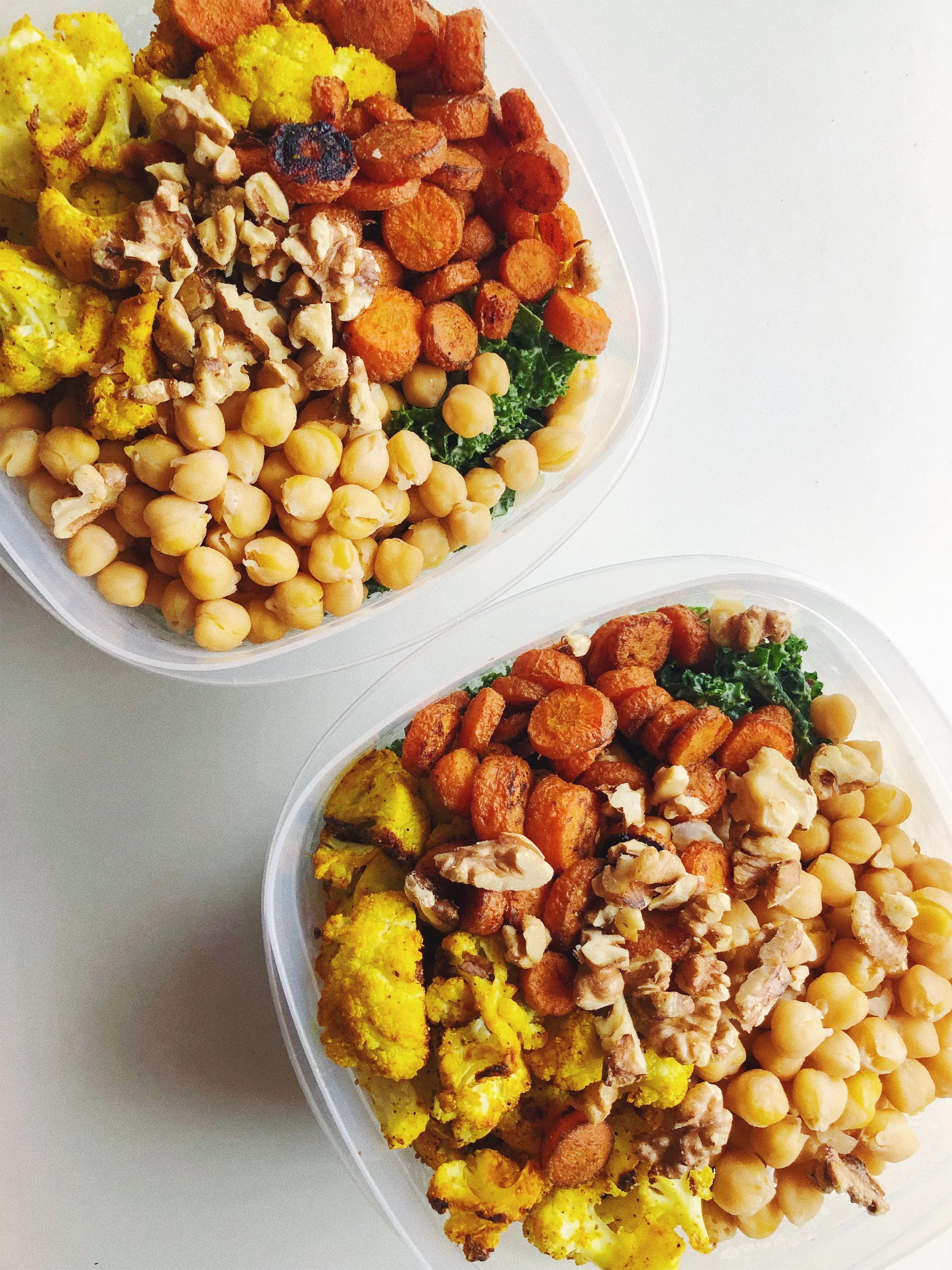A Better Breakfast Bowl tastes amazing, keeps you full & gives you the energy you need to get through your day. It’s full of satiating healthy fats, fiber & complex carbohydrates. Best of all, it’s fast to make. While better breakfast bowls are ideally enjoyed sitting down before getting into your day, they’re also portable for those days when that’s just not possible.
the good
As far as savory breakfasts go, eggs are my favorite way to do it. This Better Breakfast Bowl is so satisfying – I think especially because of the blend of spices in the eggs. Briefly caramelizing the onions before adding the eggs is such a delicious addition and makes the dish. The sauerkraut and (optional) ketchup add a tang that is a nice contrast to the richness of the avocado and the eggs. This comes together in about 10 minutes, so it’s best if you’ve got a little time in the morning. I don’t usually transport scrambles, but if you’ll be eating it within 30 minutes, you could transfer this to a to-go container to enjoy when you get where you’re going.
the medicine
Eggs are a hotly debated food item, but now that we know that cholesterol we eat doesn’t translate to cholesterol in our body, people are less inclined to demonize them (1). It’s crucial to include the yolks because they contain most of the nutrients and valuable fat that our body needs! Eggs are an excellent source of protein. They are also great sources of B vitamins, vitamin A, vitamin D, vitamin E, folate, selenium, and choline – a nutrient that most people don’t get enough of, but is essential for healthy cell membranes and brain function.
Onions and garlic contain sulfur, which is important for healthy detoxification.
Greens, no matter what kind they are, are nutrient power houses. They contain tons of trace minerals that we need to function optimally. A recent study shows that just 1 cup of greens a day enhances brain health as we age.
Herbs and spices are powerful sources of polyphenols and antioxidants. Turmeric especially is known for its anti-inflammatory effects.
Avocado provides healthy monounsaturated fats and fiber to help keep you feeling full.
Sauerkraut is full of probiotics that support digestions and gut health.
The Good Medicine Scramble
prep time 5 minutes / total time 10-15 minutes
ingredients
1 tbsp olive or avocado oil
½ an onion, sliced
1 garlic clove, minced (optional)
2 big handfuls greens if your choice
1 tbsp nutritional yeast (optional)
½ cup your favorite veggies (optional)
2 organic eggs
¼ tsp garlic granules
¼ tsp smoked paprika
¼ tsp turmeric
salt + pepper
serve with:
½ avocado
2 tbsp sauerkraut
ketchup (optional)
1 slice your favorite toast (this is mine)
directions
1. Heat oil in a pan. When oil is hot, add the onion and garlic, stirring occasionally.
2. While the onion and garlic are cooking, crack the eggs into a small bowl and add the spices. Use a fork to whisk the eggs until the spices are well incorporated.
3. Once the onion and garlic are soft and just starting to brown, add the greens and any extra veggies you desire (previously cooked sweet potato or broccoli, for example). Allow the greens to wilt and stir them in with the onions and garlic. This should only take a minute. Add the nutritional yeast if you’re using it.
4. Pour egg mixture into pan. Allow to sit for about a minute, then begin to push the eggs around in the pan, until the eggs are cooked to your liking.
5. Transfer the scramble to a bowl. Top with avocado, sauerkraut, ketchup and an extra sprinkle of salt and pepper. Serve with toast if you’d like.
6. Enjoy! I hope you feel full, happy & ready to take on your day!






























